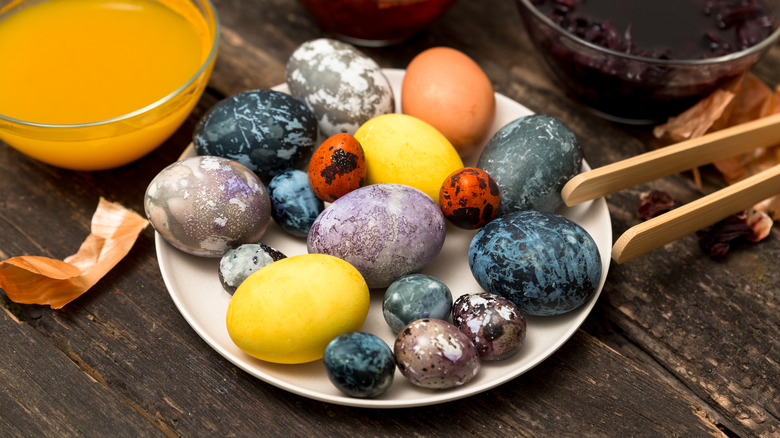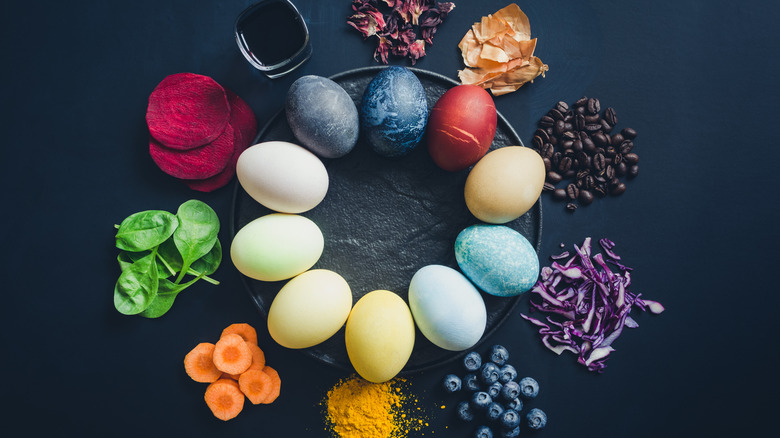Are Dyed Eggs Actually Safe To Eat?
For those of us who celebrate Easter, eggs are a holiday staple. Especially for kids, Easter usually brings an egg hunt. While some families (and most organizations) opt for the reusable plastic eggs, some use real eggs. But, if you're using real eggs, it's no fun to simply hide them around as-is. No, those eggs need some color. Or a lot of color. And glitter. And stickers.
With that being said, it's pretty common these days to see boxes and boxes of egg decorating kits at your local grocery store. Some are themed and have extra accessories, while some just have dye and let you use your own imagination. Even if your brain is a little fried (pun intended), sites like Good Housekeeping have you covered on egg inspo.
However, the concern with dyed eggs is whether or not they're still safe to consume. We don't want to be wasteful, after all. Many kits are labeled as containing non-toxic dyes, but parents might still worry about artificial dyes. So, what's the verdict?
To eat, or not to eat? That is the question!
Rest assured, you can safely eat those lovely eggs you dyed. According to The Daily Meal, as long as you use non-toxic dye and handle your dyed eggs as you would any other hard-boiled eggs, you're good to go. This means storing them in the refrigerator and tossing eggs that have cracked.
If you're still wary of using the dye that comes in store-bought kits, you have a few other options. You can use food dye you already have at home, or you can create your own natural dyes. Beets provide pink, spinach gives you green, turmeric creates yellow, and blueberries make purple, says Bigger Bolder Baking.
Okay, so your eggs are safe to eat. But, unless you really like hard-boiled eggs, you might be stumped when it comes to using them up in a timely manner. Don't worry — Bon Appetit has you covered when it comes to hard-boiled egg recipes. Color away!

